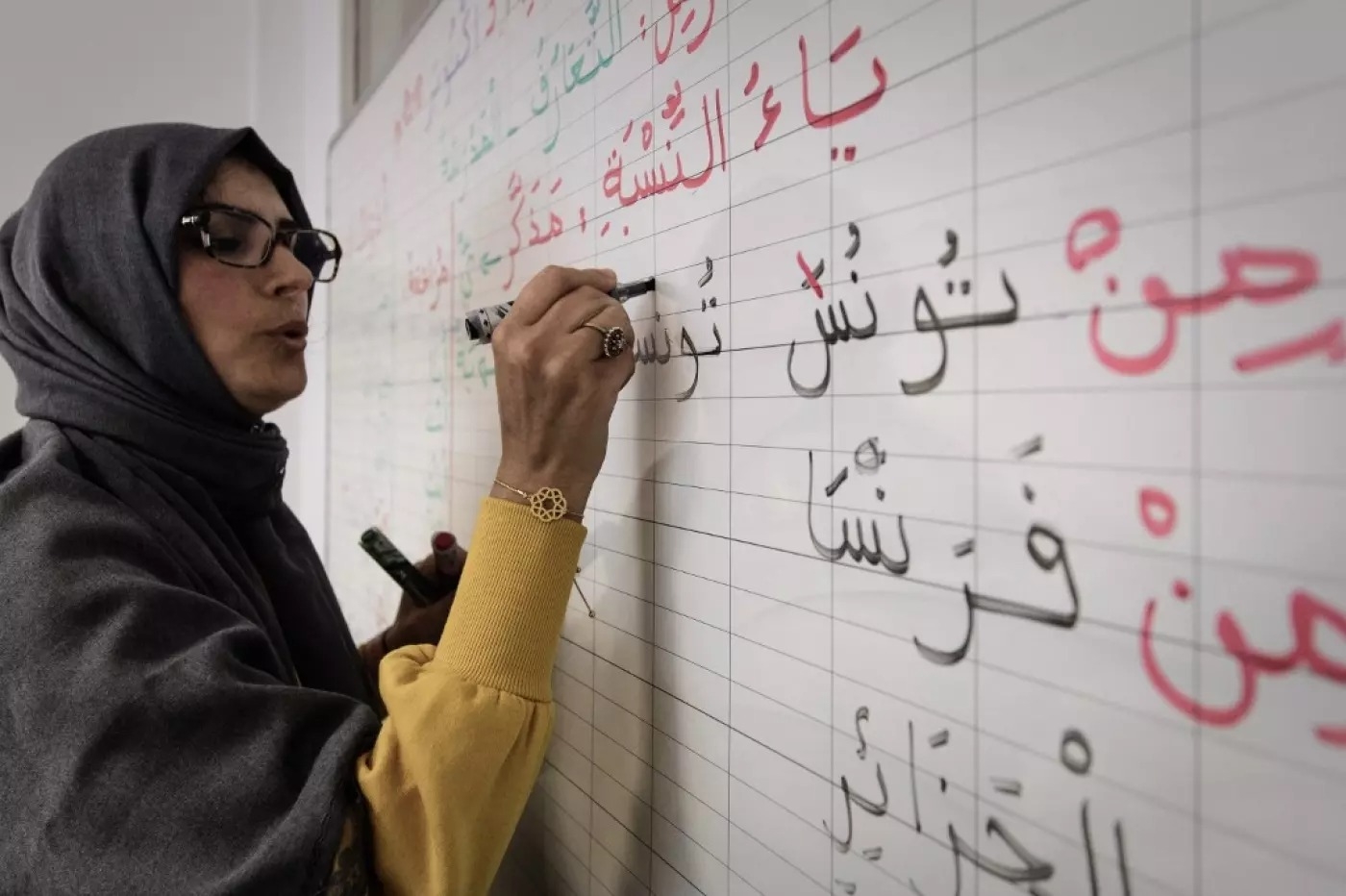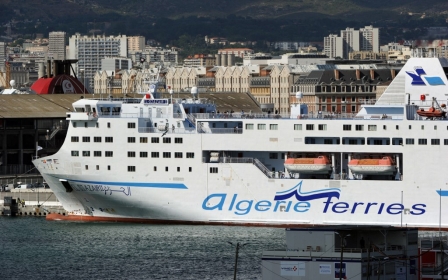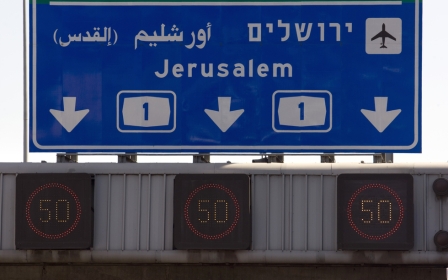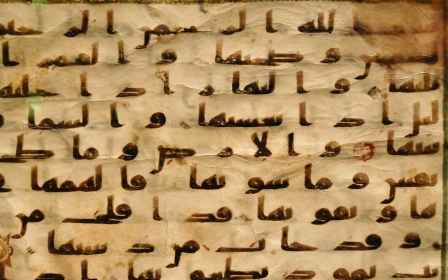Why does Arabic have such an image problem in France?

In France, Arabic is the second most spoken language, among three to four million speakers, mainly of North African origin. However, it is only taught in three percent of the country's schools, positioning itself behind Chinese and Russian. Why?
And why do many Arabic-speaking parents not speak their mother tongue with their children, practising a kind of "self-censorship" that breaks the mechanisms of transmission?
This is what is questioned by Mauvaise langue (Bad language), a documentary recently broadcast on a French television channel which deals with the place of Arabic in the country.
Its author, Nabil Wakim, a journalist for the French daily newspaper Le Monde who was born in Lebanon, draws on his own personal experience to examine the factors that have contributed to the invisibility of this language and limited its learning.
In the report, Wakim, who also addressed this dual issue in a book published in 2020, confides that he forbade himself from speaking with his daughter in Arabic "out of survival instinct" after the attacks claimed by al-Qaeda and the Islamic State group in Paris in 2015.
New MEE newsletter: Jerusalem Dispatch
Sign up to get the latest insights and analysis on Israel-Palestine, alongside Turkey Unpacked and other MEE newsletters
He also says that after his arrival in France at the age of four, he was ashamed when his mother spoke to him in Arabic in the street.
"A number of stereotypes are attached to Arabic. They refer to the idea that it is the language of Islam, of terrorism and that it is therefore dangerous," the journalist told Middle East Eye, while denouncing the impact of such a caricature on the image of Arabic in the public debate and education.
Bad reputation
Before Arabic was pointed at in the news as one of the symbols of Muslims' "retreat into their own community" and "Islamism", the latter being essentially understood in France as a radical or even violent doctrine, the language already suffered a bad reputation.
"In the collective imagination, Arabic is the language of the former colonised people and immigrants from the Maghreb who came to work in France; it is in a way the language of the poor," linguist Nisrine Al Zahre, director of the Centre for Arabic Language and Civilisations at the Arab World Institute in Paris, told MEE.
At the end of the 70s, France, which then no longer needed foreign labour due to an economic crisis, set up a system of optional learning of foreign languages in schools in order to aid the integration of immigrants' children in their parents' countries of origin, and therefore facilitate the departure of these families.
'A number of stereotypes are attached to Arabic. They refer to the idea that it is the language of Islam, of terrorism and that it is therefore dangerous'
- Nabil Wakim, journalist
This system, called ELCO (Teaching of Language and Culture of Origin), which included Arabic, Turkish, Portuguese, Spanish, Italian and Serbian, reached 80,000 primary school students per year, that is 1.2 percent of the total pupil population.
However, in October 2020, President Emmanuel Macron decided to stop the programme because the teachers involved were sent by the countries of potential return and not born in France.
"The problem we have today with this system is that we have more and more teachers who do not speak French (...) that we have more and more teachers over whom the National Education ministry has no control," the French president argued, suspecting these foreign teachers of "imparting things that are not compatible with the laws of the republic".
Foreign teachers that taught Portuguese, Italian or Serbian were not concerned by Macron's statement, which mainly targeted their Arabic-speaking colleagues.
Macron’s announcement about the end of ELCO coincided with a meeting on "Islamist separatism", during which the head of state declared that France would seek to "liberate" Islam in France from foreign influences.
A few months later, in 2021, the parliament passed the "law consolidating the principles of the republic", which has been accused of being discriminatory against Muslims for broadening the grounds for closing mosques and introducing an offence of "separatism" punishable by up to five years in prison, among other measures.
'Incredible ignorance'
In his documentary, Wakim interviewed former Minister of National Education Najat Vallaud-Belkacem, who tried to improve the teaching of Arabic in 2016, as part of a diversification of the teaching of foreign languages.
Her initiative was however attacked by right-wing politicians, who accused Vallaud-Belkacem of paving the way for communitarianism and promoting "an Islamic catechism", which ultimately forced the minister to abandon her project.
Like Wakim, Vallaud-Belkacem, who is herself of Moroccan origin, regrets that Arabic is regarded as a danger in France.
"This language continues to be perceived as the Trojan horse of the Great Replacement, of this fantasised invasion, of this Islamism that scares," she said in the documentary.
"This is forgetting that there are many people - atheists, Christians, etc - who practise Arabic, read it and write it. This is an incredible ignorance of the reality of Arabic speakers," she added.
Today, France has only 150 Arabic teachers for the entire secondary school education system. Open competitions for teachers' recruitment offer only a few positions each time.
Furthermore, Arabic is mainly taught in secondary schools that are located in neighbourhoods mostly inhabited by people with an immigrant background.
"There are entire [regions] where no Arabic classes are available because of the lack of willing on behalf of the Department for Education, chief education officers and principals," Wakim told MEE.
The journalist believes that some school directors do not open Arabic courses intentionally so as not to attract too many students from the lower classes.
'This language continues to be perceived as the Trojan horse of the Great Replacement, of this fantasised invasion, of this Islamism that scares'
- Najat Vallaud-Belkacem, former minister of education
"There is an element of class contempt there," he said.
Also, many Arabic-speaking families do not want their children to choose Arabic as a foreign language, Wakim emphasised.
This can be in part explained by practical reasons. Parents worry that by choosing Arabic for their children, educational continuity may not be ensured because from an academic year to another, Arabic classes can stop being available.
Furthermore, Wakim explains that "insisting on the transmission of Arabic generates a fear among families that is not always conscious". As if, he told MEE, "the integration of their children requires the choice of other languages."
Linguist Al Zahre explains that "this fear is more perceptible in low-income families, who are more impacted by the degraded image suffered by Arabic in France".
"Conversely, more well-off Arabic-speaking circles do not suffer from it because they believe that they have assets to assert. They are also more involved in transmission," she told MEE.
Middle East Eye delivers independent and unrivalled coverage and analysis of the Middle East, North Africa and beyond. To learn more about republishing this content and the associated fees, please fill out this form. More about MEE can be found here.





